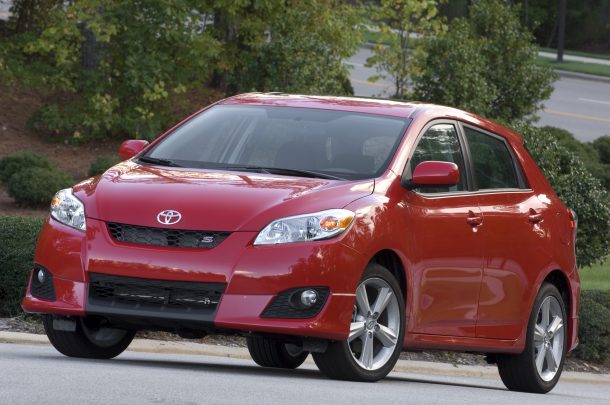Toyota's Off the Hook: Unintended Acceleration Saga Ends

On Thursday, a U.S. judge dismissed the criminal charges against Toyota Motor Corp after the automaker completed a mandated three years of probationary monitoring. As part of its $1.2 billion settlement, where it admitted to intentionally misleading the public over dangerous unintended acceleration and building vehicles with faulty parts, Toyota was assigned former U.S. attorney David Kelley as an independent safety monitor.
“It is a long road ahead,” he said upon his appointment in 2014. “If you look at the deferred prosecution agreement there is a lot of ground to cover.”
The agreement gave Kelley sweeping powers to hire staff and review all of Toyota’s policies and operating procedures for communicating safety issues internally and to regulators. Kelley and his staff were required to be payed standard consulting fees and rates by Toyota, but this will be their last week on the job.
Adhering to the settlement terms, the Justice Department agreed to move for dismissal of any further criminal charges. U.S. District Judge William Pauley in New York concurred with the motion and ruled to close the case entirely.
Toyota spokesman Scott Vazin told Reuters the company was pleased the court accepted the recommendation. “Over the past three years, we have worked hard in the spirit of continuous improvement to make Toyota a stronger company that serves its customers better,” he said.
While not all civil claims have been settled, Toyota spent an estimated additional $1.63 billion in lawsuits related to the case. It also invested in itself to make significant changes to its safety practices and policies following a recall crisis so vast that it was temporarily forced to suspend sales of half its fleet in 2010.
“Regrettably, the payment of a $1.2 billion fine and the appointment of a monitor appear to have concluded the government’s investigation into this tragic episode,” Judge Pauley said on Thursday.
[Image: Toyota]

A staunch consumer advocate tracking industry trends and regulation. Before joining TTAC, Matt spent a decade working for marketing and research firms based in NYC. Clients included several of the world’s largest automakers, global tire brands, and aftermarket part suppliers. Dissatisfied with the corporate world and resentful of having to wear suits everyday, he pivoted to writing about cars. Since then, that man has become an ardent supporter of the right-to-repair movement, been interviewed on the auto industry by national radio broadcasts, driven more rental cars than anyone ever should, participated in amateur rallying events, and received the requisite minimum training as sanctioned by the SCCA. Handy with a wrench, Matt grew up surrounded by Detroit auto workers and managed to get a pizza delivery job before he was legally eligible. He later found himself driving box trucks through Manhattan, guaranteeing future sympathy for actual truckers. He continues to conduct research pertaining to the automotive sector as an independent contractor and has since moved back to his native Michigan, closer to where the cars are born. A contrarian, Matt claims to prefer understeer — stating that front and all-wheel drive vehicles cater best to his driving style.
More by Matt Posky
Latest Car Reviews
Read moreLatest Product Reviews
Read moreRecent Comments
- Kjhkjlhkjhkljh kljhjkhjklhkjh A prelude is a bad idea. There is already Acura with all the weird sport trims. This will not make back it's R&D money.
- Analoggrotto I don't see a red car here, how blazing stupid are you people?
- Redapple2 Love the wheels
- Redapple2 Good luck to them. They used to make great cars. 510. 240Z, Sentra SE-R. Maxima. Frontier.
- Joe65688619 Under Ghosn they went through the same short-term bottom-line thinking that GM did in the 80s/90s, and they have not recovered say, to their heyday in the 50s and 60s in terms of market share and innovation. Poor design decisions (a CVT in their front-wheel drive "4-Door Sports Car", model overlap in a poorly performing segment (they never needed the Altima AND the Maxima...what they needed was one vehicle with different drivetrain, including hybrid, to compete with the Accord/Camry, and decontenting their vehicles: My 2012 QX56 (I know, not a Nissan, but the same holds for the Armada) had power rear windows in the cargo area that could vent, a glass hatch on the back door that could be opened separate from the whole liftgate (in such a tall vehicle, kinda essential if you have it in a garage and want to load the trunk without having to open the garage door to make room for the lift gate), a nice driver's side folding armrest, and a few other quality-of-life details absent from my 2018 QX80. In a competitive market this attention to detai is can be the differentiator that sell cars. Now they are caught in the middle of the market, competing more with Hyundai and Kia and selling discounted vehicles near the same price points, but losing money on them. They invested also invested a lot in niche platforms. The Leaf was one of the first full EVs, but never really evolved. They misjudged the market - luxury EVs are selling, small budget models not so much. Variable compression engines offering little in terms of real-world power or tech, let a lot of complexity that is leading to higher failure rates. Aside from the Z and GT-R (low volume models), not much forced induction (whether your a fan or not, look at what Honda did with the CR-V and Acura RDX - same chassis, slap a turbo on it, make it nicer inside, and now you can sell it as a semi-premium brand with higher markup). That said, I do believe they retain the technical and engineering capability to do far better. About time management realized they need to make smarter investments and understand their markets better.


































Comments
Join the conversation
Wasn't one of the odd things about this sorry saga that even if the throttle is fully open the brakes are still powerful enough to bring the car to a halt without too much difficulty - which would suggest that pressing the wrong pedal is the most likely explanation?
While I'm not a Toyota fanboi, I was very sympathetic to Toyota at be beginning of this fiasco. Yes, there were floormat problems. Yes, the cars could've been stopped by holding down the start button, or standing on (not pumping) the brakes. But I personally thought that the lawsuits were bogus, just like the lawsuits filed against Audi. However. In one privately-funded lawsuit against Toyota, some embedded-software experts studied Toyota's software for 18 months. They documented that Toyota's software was un-maintainable "spaghetti code", and that Toyota did not use a source-control system. And they identified a critical task they called "Task X" in court testimony. According to their analysis, if Task X died, the car would accelerate with no input from the accelerator pedal. The prosecution installed an ICE (In-Circuit Emulator) in two of the afflicted Toyotas, set the cars running on a dynamometer, and used the ICE to clobber some global variable with a bad value. Task X died as a result. With the car running almost 70MPH on the dyno, they pressed Resume on the cruise control, and, with Task X dead, the car accelerated beyond 90MPH with no accelerator. In this scenario, the brake pedal would still disengage the cruise control, and they did so, as 90+MPH on a dyno sounds pretty scary to me. But they proved their points: a) Task X could be killed with some trivial memory corruption, and b) when Task X died, the car would likely accelerate with no driver input. https://www.eetimes.com/document.asp?doc_id=1319966 After the above loss, Toyota settled all the remaining unintended-acceleration cases: https://www.bloomberg.com/news/articles/2013-10-25/toyota-settles-oklahoma-acceleration-case-after-jury-verdict